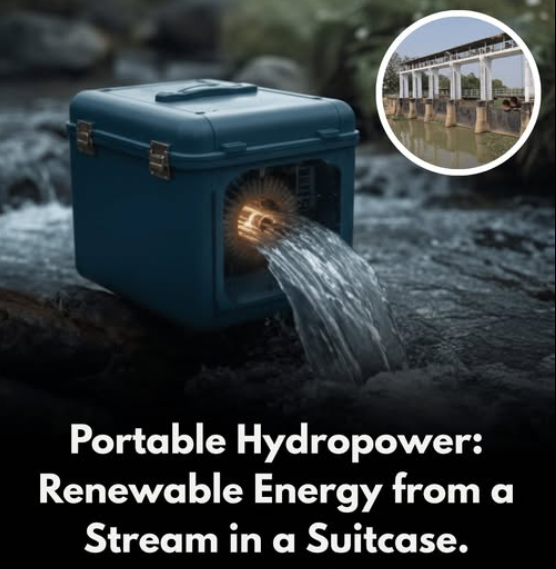A new carshare initiative is steering Charlotte toward a more equitable and sustainable future. Carolina Carshare, launched last week at Peppertree Apartments in the Albemarle Road/Central Avenue Corridor of Opportunity, offers residents access to electric vehicles (EVs) at a fraction of the cost of traditional car ownership — a development that’s already having an impact on lives like that of Lucius Johnson, a longtime resident of the complex.

No-cost charging stations are conveniently located on-site at the Peppertree Apartments.
“It’s good, safe, and you don’t have to call an Uber,” Johnson said.
The program is a collaboration between the City of Charlotte, the Southern Alliance for Clean Energy (SACE), Centralina Clean Fuels Coalition, Ascent Housing, Envision Charlotte, and DreamKey Partners. It’s part of the national Affordable Mobility Platform (AMP), a Community Car Share pilot developed by Forth to increase clean transportation options in underserved communities. Charlotte is the only city in the Southeast selected for the pilot and one of just 13 nationwide.
Carolina Carsharee is part of a broader national initiative to bring EVs to affordable housing sites. Through AMP, Forth aims to deploy 50 shared EVs and Level 2 chargers in low-income and underserved communities across eight states by the end of 2025. Charlotte is the only AMP location east of Michigan, joining programs in cities like Detroit, Ann Arbor, Kalamazoo, Seattle, and Albuquerque. Each site is tailored to meet local needs, but all share the goal of improving mobility options while reducing transportation emissions in areas often left behind in the EV transition.
Residents can reserve Chevy Bolt EVs for $5 per hour or $50 per day through a mobile app. The cost includes insurance, charging, and 24/7 support. No-cost charging stations are conveniently located on-site at the Peppertree Apartments, making it easy for users to access and return the vehicles.
According to Stan Cross, Electric Transportation Director at SACE, exposure is one of the biggest challenges to widespread EV adoption. Consumers are not always aware of the benefits EVs provide, like a quiet, high-performance ride with no emissions and lower operational costs. Experiences like test drives have historically helped shift opinions on EVs. Carolina Carshare builds on this idea by offering residents an ongoing, real-world opportunity to drive EVs in their daily lives.
“EV car-sharing programs are another way to provide people with EV experiences they might not be able to access or not choose to access on their own,” Cross said. By bringing electric vehicles to renters and families in affordable housing, Carolina Carshare helps bridge the awareness and access gap that has kept EVs out of reach.

(From left to right) Ascent Housing Managing Principal Mark Ethridge; District 5 Representative Marjorie Molina; Charlotte Chief Sustainability and Resilience Officer Heather Bolick; SACE Electric Transportation Director Stan Cross; Forth Program Manager Courtney Cucchissi; SACE Executive Director Stephen Smith; and SACE Senior Electric Transportation Program Manager Dory Larsen.
The car-share program also makes EV charging available to residents of multi-family housing. Because multi-family developers typically do not install EV chargers, home charging access at apartments adds an additional challenge to EV adoption. Expanding charging infrastructure directly at affordable housing sites removes another key barrier to EV ownership, especially as more used EVs enter the market.
Mayor Vi Lyles praised the launch, saying, “This project is a perfect example of what it looks like when we align our values with action. By investing in electric vehicle access in our Corridors of Opportunity, we’re giving families the tools they need to reach better jobs, education, and services, while building a more sustainable future for Charlotte.” The program supports the city’s broader goals for sustainability and equity, outlined in the Strategic Energy Action Plan.
“The Affordable Mobility Platform tackles two challenges at once – the high cost of car ownership and poor air quality in underserved areas – by bringing affordable electric vehicles to low-income communities,” Courtney Cucchissi, Forth Program Manager

Charlotte Mayor Vi Lyles attended the ribbon-cutting along with city officials and partners, including SACE, the Centralina Clean Fuels Coalition, Ascent Housing, Envision Charlotte and DreamKey Partners.
For Johnson, one of the biggest benefits is freedom of movement, without relying on public transit or ride-hailing apps. “You don’t have to stand at the bus stop. $5 and you can get anywhere in Charlotte.”
While Peppertree is the first site for the carshare program, additional locations are planned throughout the city in 2025. The expansion could bring the benefits of electric mobility to more neighborhoods, including those without reliable access to public transportation.
“Wherever the bus station doesn’t participate in transportation, it would be nice to have… in rural areas,” said Johnson. “To get you to Walmart, somewhere that you can go safely.”
For others considering trying the program, Johnson had a simple pitch. “If you’ve got a clean driver’s license record and you can pay for the car—$5, I don’t know where you can go get a rental car for $5 with insurance,” he said. “And they’re electric, so as long as you take it back, you don’t pay for electricity.”
“If you can beat $5, let me know,” Lucius Johnson, Peppertree Resident
With support from a network of local and national organizations, Carolina Carshare is designed to be more than just a mobility solution — it’s also an investment in community health, economic opportunity, and environmental responsibility.
“This is more than a transportation solution, it’s a housing stability solution,” said Rebecca Hefner, Director of Charlotte’s Housing & Neighborhood Services Department. “When families have access to dependable, affordable mobility, they’re better positioned to succeed, and our communities grow stronger.”
The post Carolina Carshare Brings Electric Mobility to Charlotte’s Corridors of Opportunity appeared first on SACE | Southern Alliance for Clean Energy.
Carolina Carshare Brings Electric Mobility to Charlotte’s Corridors of Opportunity
Renewable Energy
Homeschooling
Decent and intelligent people respect the rights of parents to homeschool their children, but there are two reasons for concern: a) socialization, failure to expose children to their peers, so that they may make friends and come to understand the norms of society, and b) the quality of the education itself.
Almost all homeschooling in the United States is conducted on the basis of a radical rightwing viewpoint, normally a blend of evangelical Christianity and Trumpism.
Renewable Energy
The Positive Effects We’ve Had on Others Are Profound, Whether We Know It or Not
 There’s a theory that most people underestimate the positive effects they’ve had on other people.
There’s a theory that most people underestimate the positive effects they’ve had on other people.
Yes, that’s the theme of “It’s a Wonderful Life,” but it’s also the core of the 1995 film “Mr. Holland’s Opus,” in which a music teacher who deemed that his life had been a failure because he never completed writing a great symphony, is gently and beautifully corrected. Please see below.
The Positive Effects We’ve Had on Others Are Profound, Whether We Know It or Not
Renewable Energy
Renewable Energy Concepts Can’t Violate the Laws of Physics
 In the early days of 2GreenEnergy, my people and I were vigorously engaged in finding solid ideas in cleantech that needed funding in order to move forward.
In the early days of 2GreenEnergy, my people and I were vigorously engaged in finding solid ideas in cleantech that needed funding in order to move forward.
I vividly remember a conversation with a guy in Maryland who was trying to explain the (ostensible) breakthrough that he and his team had made in hydrokinetics. When I was having trouble visualizing what we was talking about, he asked me to “think of it as a river in a box.”
“Oh!” I exclaimed. “You mean you take a box full of standing water, add energy to it get it moving, then extract that energy, leaving you with more energy that you added to it.”
“Exactly.”
I politely explained that the laws of physics, specifically the first and second laws of thermodynamics, make this impossible.
He wasn’t through, however, and insisted that, in his office, his people had constructed a “working model.”
Here’s where my tone descended into something less than 100% polite. I told him that he may think he has a working model, but he’s wrong; if he believes this, he’s ignorant; if he doesn’t, but is conducting this conversation anyway, he’s a fraud.
“But don’t you want to come see it?” he implored.
“No. Not only would not fly across the country to see whatever it is you claim to have built, I wouldn’t walk across the street to a “working model” of something that is theoretically impossible.”
—
I tell this story because the claim made at the upper left is essentially identical. You’re pumping water up out of a stream, and then claiming to extract more energy when the water flows back into the stream.
Of course, social media today is rife with complete crap like this. We’ve devolved to a point where defrauding money out of idiots is rapidly replacing baseball as our national pastime.
-
Greenhouse Gases7 months ago
Guest post: Why China is still building new coal – and when it might stop
-
Climate Change7 months ago
Guest post: Why China is still building new coal – and when it might stop
-

 Greenhouse Gases2 years ago
Greenhouse Gases2 years ago嘉宾来稿:满足中国增长的用电需求 光伏加储能“比新建煤电更实惠”
-
Climate Change2 years ago
Bill Discounting Climate Change in Florida’s Energy Policy Awaits DeSantis’ Approval
-
Climate Change2 years ago
Spanish-language misinformation on renewable energy spreads online, report shows
-

 Climate Change2 years ago
Climate Change2 years ago嘉宾来稿:满足中国增长的用电需求 光伏加储能“比新建煤电更实惠”
-
Climate Change Videos2 years ago
The toxic gas flares fuelling Nigeria’s climate change – BBC News
-

 Carbon Footprint2 years ago
Carbon Footprint2 years agoUS SEC’s Climate Disclosure Rules Spur Renewed Interest in Carbon Credits



